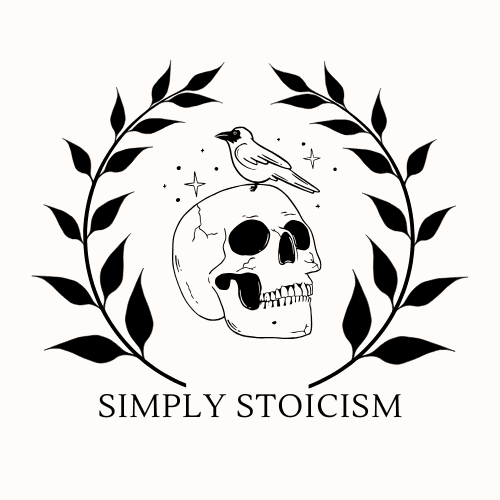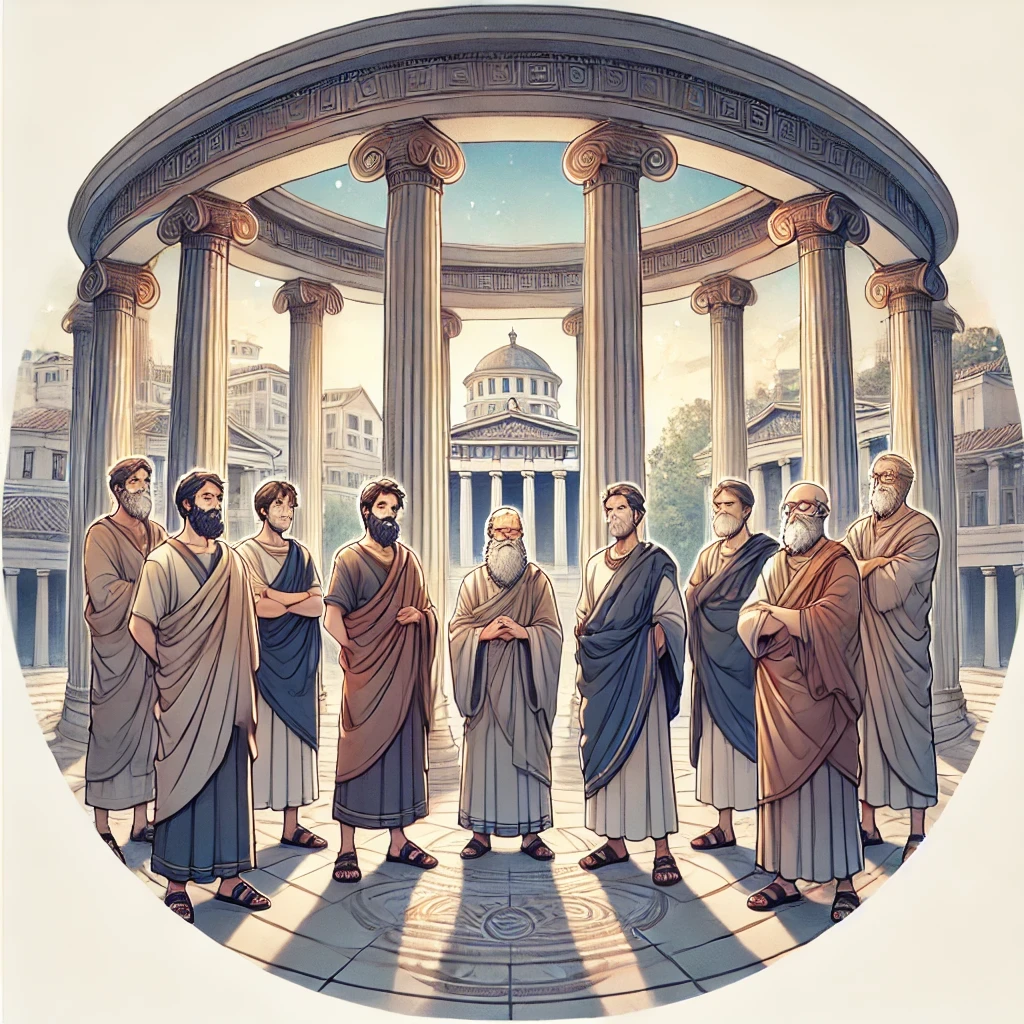9 Core Stoic Beliefs That Could Transform Your Life Today
Explore these 9 core Stoic beliefs, each rooted in a unique blend of reason, virtue, and practical wisdom, to bring stability, clarity, and purpose to modern life.

Jon High
·
Nov 1, 2024
Let’s face it: life’s a mixed bag of ups, downs, and plenty of surprises. No matter how carefully we plan, things rarely turn out just the way we want. So, how do we find peace when so much is out of our hands? That’s where Stoicism comes in. This ancient Greek philosophy, crafted and practiced by thinkers like Zeno, Epictetus, and Marcus Aurelius, isn’t about detachment or coldness—it’s about cultivating a mindset that helps us live peacefully amid the chaos of life. These 9 core Stoic beliefs provide a roadmap for achieving a resilient, balanced, and meaningful life.
1. Live in Harmony with Nature
The first pillar of Stoic philosophy is as simple as it is powerful: live in tune with nature. But this doesn’t just mean protecting the planet (although that’s important too). In Stoic terms, “nature” is the bigger picture of our universe—an interconnected, purposeful world we’re part of. Zeno, the founder of Stoicism, called this living with a “smooth flow of life,” which means aligning our actions, decisions, and values with the greater natural order.
The Stoics saw life as a mix of physics, logic, and ethics—three disciplines that when balanced, bring clarity and purpose. Physics was about understanding our place in the material world, logic was the tool to refine our thinking, and ethics was about living with integrity. Together, these principles let us understand our place in the world and how our actions affect it. In Stoic thought, every decision counts because it’s part of the bigger web of existence, one that’s rational, social, and undeniably interconnected.
2. Happiness Lies in Virtue, Not in Material Things
We’ve all been conditioned to think that happiness lies somewhere outside ourselves—in the right job, the perfect partner, or the next big achievement. Stoics, however, flipped that notion on its head. For them, happiness wasn’t about wealth, status, or anything external; it was about virtue. Virtue, or “arete,” is the pursuit of our best self—living with wisdom, courage, justice, and self-control.
The Stoics believed that virtues guide our decisions and lead to a fulfilling life. The four cardinal virtues form the foundation of Stoic ethics:
Wisdom: Understanding what truly matters and acting accordingly.
Self-Control: Knowing what to pursue and what to let go.
Justice: Treating others fairly and acknowledging our role within the community.
Courage: Facing adversity with resilience.
In modern terms, virtue is like an internal compass. By focusing on character instead of circumstances, we find happiness from within. Epictetus reminded his students that external things are neutral; they only gain meaning based on how we value them. When we let our virtues lead, we connect with our deeper purpose and bypass the temporary highs and lows that material pursuits bring.
3. Focus on What You Can Control
Life throws all kinds of things our way—some of them welcome, and others, not so much. Stoics drew a sharp line between what’s within our control and what isn’t. The only things we can truly govern, they taught, are our own thoughts, judgments, and actions. Everything else, from weather to other people’s opinions, exists beyond our influence.
By focusing on our own responses, we can maintain a steady course even when life gets rocky. The Stoics called things outside our control “indifferents”—they don’t inherently affect our worth or happiness. Sure, we’d prefer health over sickness and wealth over poverty, but these are external factors that don’t define us. This belief in controlling one’s own reactions frees us from the roller-coaster of external events, anchoring us in self-possession and inner peace.
4. You Already Have What You Need to Thrive
One misconception about Stoicism is that it’s all about suppressing emotions. In reality, Stoics didn’t deny emotions—they wanted to replace destructive ones with healthier, more rational ones. They believed that everyone is born with the seeds of virtue, meaning we each have an inherent ability to thrive, even under tough circumstances.
Cleanthes, one of Zeno’s early followers, compared us to incomplete poems; our purpose is to refine and complete our character. Stoics acknowledged that life can throw plenty of obstacles our way, but these obstacles are merely opportunities to put our inner resources to the test. According to Stoic thought, it’s our job to harness these resources and act in ways that bring out the best in us.
By cultivating these inborn virtues, we come closer to our true selves. Stoics called this “eupatheia,” or rational emotions that replace the toxic habits of envy, anger, and despair. Imagine replacing anxiety with calm determination or channeling fear into thoughtful caution. With practice, these qualities become habits that ground us even when external chaos surrounds us.
5. Toxic Emotions Block the Path to Peace
If you’ve ever let anger or fear drive your decisions, you know how quickly emotions can spiral out of control. Stoics saw unchecked emotions as distractions from inner peace. Seneca, one of the most eloquent Stoic writers, spoke often about the dangers of anger. He saw it as a fire that consumes reason, often leading us to regretful actions. His advice? Distance yourself from anger; give yourself time to cool down before acting on impulse.
The Stoics also saw hope and fear as two sides of the same coin, both based on our projections of the future. Epictetus taught that instead of letting our minds live in a hypothetical future, we should focus on what we can influence in the present. By keeping our focus on today’s tasks, we save ourselves from the roller-coaster of fluctuating emotions. It’s not about denying feelings but learning to see them for what they are—signals that, if unchecked, can lead us away from rational thought.
6. Take Responsibility: No Excuses, No Complaints
Ever felt like playing the blame game? Stoics discouraged this because they believed that blaming external factors takes away our personal power. Stoics took full ownership of their reactions, never giving in to the urge to blame luck, other people, or circumstances. Epictetus famously taught that nothing outside of our own judgment has the power to disrupt our peace—only our own beliefs can.
This is a tougher pill to swallow than it sounds. If we’re truly responsible for our thoughts and actions, we’re also responsible for changing what’s not working in our lives. Complaining, in Stoic thought, is a waste of energy. Instead, they advocated for addressing challenges with calm, thoughtful responses that help us stay aligned with our values.
This self-responsibility is not about perfection, but about refusing to give away our inner power. When we stop looking for excuses, we start looking for ways to improve and grow.
7. The Stoic Golden Rule: Remember We’re All Connected
The Stoics believed that our lives are not isolated stories; we’re all deeply connected. Hierocles, a Stoic philosopher, illustrated this with a set of concentric circles. The innermost circle is ourselves, and each larger circle represents people further out from us—family, friends, community, country, and ultimately, all of humanity. Stoicism teaches us to bring these circles closer by treating each circle with the same care and respect as we would ourselves.
For Stoics, ethics wasn’t just personal; it was about creating a harmonious society. They knew that a life focused only on self-interest would inevitably be a lonely one. Instead, they practiced “sympatheia”—a sense of belonging with others. By fostering compassion and cooperation, we align ourselves with the natural order and find greater meaning in our lives.
8. True Growth Comes Through Cooperation
One of the biggest misconceptions about Stoicism is that it encourages isolation. Nothing could be further from the truth. Stoicism emphasizes the value of social engagement, not as a way to seek approval, but as a means of mutual growth. Marcus Aurelius, a Roman emperor and Stoic, reminded himself every day to approach even the most difficult people with compassion, viewing every interaction as an opportunity to learn or teach.
Seneca, another prominent Stoic thinker, went so far as to say that life’s purpose was to be of benefit to others. His philosophy embraced social responsibility as an essential part of Stoic life, a way to reinforce one’s own character while supporting the common good. Even in his later years, Seneca wrote letters filled with advice for those who sought to lead with integrity and compassion. By cooperating with others, we develop empathy and resilience, two qualities that make life richer and more fulfilling.
9. It’s About Progress, Not Perfection
Finally, Stoicism doesn’t demand perfection—it values progress. Stoics saw life as a continuous journey toward improvement. They believed that true strength lies in learning, adapting, and growing. Marcus Aurelius captured this beautifully in his Meditations, where he wrote that every challenge we face is a chance to cultivate virtue and
wisdom.
In Stoic practice, every setback is a lesson, every hardship a step toward resilience. They didn’t believe in a “finished product”; instead, they saw life as a work in progress. The Stoics understood that mistakes are inevitable. What matters is how we respond to them, using each one as a stepping stone to greater understanding.
As Epictetus said, we are our own artisans, constantly refining our character through each choice, each action. Stoic philosophy isn’t about being flawless—it’s about showing up, learning from life’s hurdles, and striving to become just a little bit better each day.
Final Thoughts
Stoicism is a philosophy that’s truly built for the long haul. With its emphasis on personal responsibility, inner peace, and our interconnectedness with others, it offers a way to live with purpose and resilience in a world full of change. By living in harmony with nature, cultivating virtue, and focusing on what we can control, we’re better equipped to navigate life’s inevitable twists and turns.
These 9 Stoic principles remind us that even when life seems out of control, we can find stability and peace within ourselves. Whether it’s by replacing toxic emotions with rational ones, refusing to play the blame game, or remembering our shared humanity, Stoicism provides a toolkit for enduring and thriving. So next time life throws a curveball your way, remember these timeless principles and embrace the opportunity to grow stronger, wiser, and more centered.



